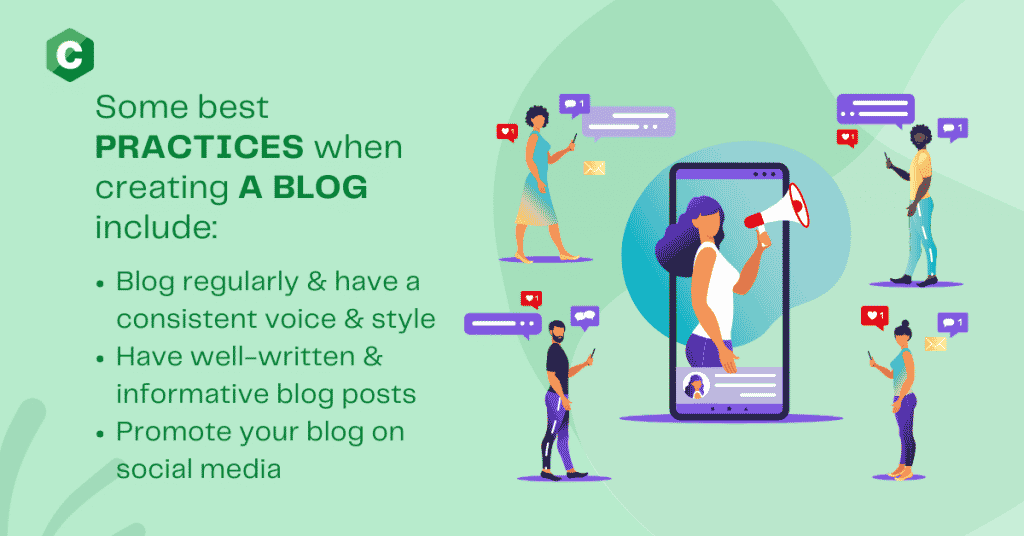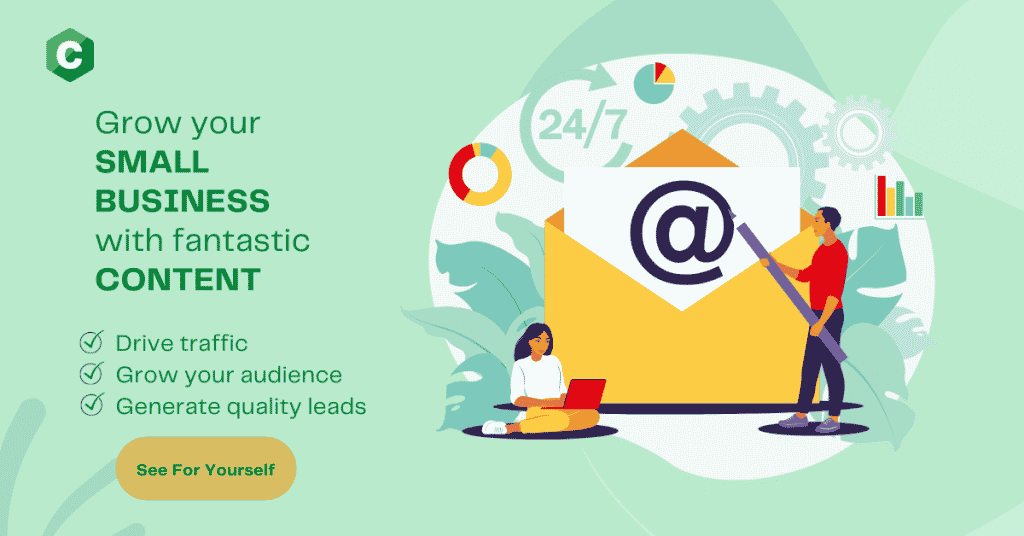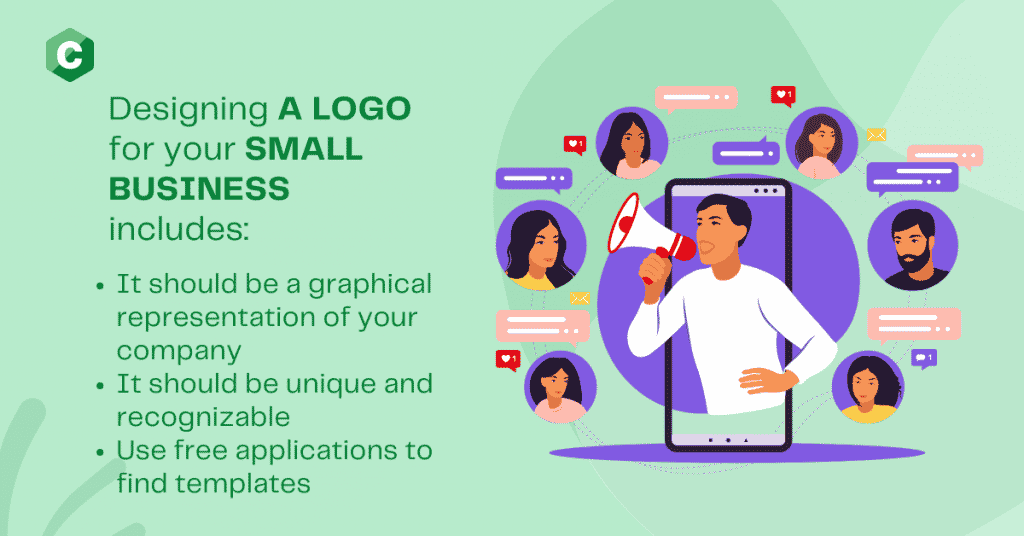Are you a small business owner looking to take your business online? If so, then this article is for you! We’ll give you an overview of some of the best online marketing strategies for small businesses, and by the end, you will have a clear understanding of online marketing for small businesses. So let’s get started!
What is online marketing? Online marketing is the process of promoting a product or service online. It is done through various means, including search engine optimization (SEO), pay-per-click (PPC) advertising, social media marketing, and content marketing.
Why is online marketing important for small businesses? Over the last few years, online marketing has grown significantly, and businesses have increasingly turned to the internet to reach new customers. One of the most important things for a small company is getting the word about its products or services and online marketing provides a cost-effective solution that is tailored to reach a specific audience.
Now let us begin with the best strategies for your small businesses.
Online Marketing Strategies For Your Business
If you’re like most small business owners, you wear a lot of hats. You’re responsible for everything from accounting to product development to customer service. And marketing is likely one of the areas that fall under your purview. But with so many other demands on your time, how can you possibly find the time to create and execute an effective online marketing campaign? And you may be wondering how to market your business online. After all, with so much competition, it can be challenging to get noticed.
Fortunately, there are easy and affordable strategies to market your small business online:
Identify your audience
As a small business owner, you must know your audience and how they interact with your business. It is especially true when it comes to online marketing. Various ways to reach your target market online require a different approach.
For example, if you’re trying to get customers through social media, you’ll need to tailor your message to your platform. Facebook is great for building customer relationships, while Twitter is better for sharing quick updates and news. Knowing your audience allows you to alter your marketing strategy, increasing the chances that they’ll take notice of your product or service. Without this knowledge, online marketing efforts can be scattered and ineffective.
What is your value proposition?
A value proposition is a statement of online marketing for small businesses to explain what makes your product or service unique and how it can benefit your customers. It should also be based on thoroughly understanding your customer’s needs and wants.
A few key things to look out for when determining your value proposition. First, make sure that it is clear and brief. Online users have very short attention spans, so you need to be able to communicate your value quickly and effectively. Second, make sure that it is relevant to your target audience. Your value proposition should be tailored to the needs and wants of your target market. Therefore, whether you’re in fashion, health & fitness, or the food business, make sure to set yourself apart.
Create a website for your business
If you’re a small business owner, you might wonder if you need a website. After all, can’t you rely on social media or word of mouth to get your name out there? While those are both crucial components of any marketing strategy, a website is essential for small businesses for a few key reasons. It helps you establish an online presence and credibility. Potential customers are more likely to trust a company that has a professional-looking website than one that doesn’t. A website also gives you more control over your branding and message.
Create a blog
The growth of blogging has been tremendous over recent years. In 2020, there were over 31 million bloggers in the United States alone, which is only expected to grow in the coming years. There are several reasons for this growth, but one of the main reasons is the increasing importance of online marketing for small businesses. In a world where online visibility is essential for success, a blog can boost your business significantly. It gives you a platform to share your expert insights and connect with potential customers, and it also helps to expand your search engine ranking and drive traffic to your website.
So what are some best practices to keep in mind?
- Ensure that you are blogging regularly and have a consistent voice and style. It will help you build an audience of loyal readers.
- Ensure your blog posts are well-written and informative. No one wants to read a poorly written post, so take the time to edit and proofread your work.
- Promote your blog on social media and other online platforms. The more people see your blog, the more likely you will get new readers.

The power of existing customers
Online marketing for small businesses isn’t just about saving money. It’s also about building relationships and creating loyalty. When customers feel valued and appreciated, they’re more likely to stick around – even if they could get a better deal elsewhere—what better way than to keep up with your existing customers. It costs much less to keep an existing customer than to acquire a new one.
It’s also easier to sell additional products and services to someone who is already familiar with your brand and has purchased from you in the past. They can also be a valuable source of upselling and cross-selling opportunities. Finally, repeat customers are more likely to take advantage of sales and special offers, providing a much-needed boost to your bottom line.
Establish your Google Business profile
One way to strategize your online presence is by setting up a Google Business profile. It is a free online listing that helps customers find your business when they search online. Your Business profile includes your business name, address, hours of operation, and contact information. It can also include photos, customer reviews, and special offers. Giving your customers access to your business on Google will heavily impact its growth and attract new clients. So if you haven’t already, set up a Google Business profile for your business. It’s quick, easy, and could make a big difference in your online marketing efforts.
Implementing search engine optimization
When it comes to online marketing for small businesses, SEO is one of the essential tools in your arsenal. But what exactly is SEO? And why is it so important? Simply put, SEO stands for “search engine optimization.” It’s a process of making your website more visible and accessible to search engines like Google and Bing. And that’s important because most online users rely on search engines to find the websites and businesses they’re looking for.
There are several benefits that SEO can provide for businesses your small business. Using targeted keywords ensures that your website and online content will appear on the search engine results pages for relevant questions. That, in turn, will lead to more customers, increase your sales, and will also draw more website visitors interested in what you offer.
Social media marketing
Social media has come a long way since its humble beginning as a way for people to keep in touch with friends and family. These days, social media is a powerful marketing tool used by businesses of all sizes to reach new customers and build relationships with existing ones.
For your small businesses, in particular, social media provides an affordable and easy-to-use platform for online marketing. And with the ability to target specific demographics, you can tailor your marketing messages to appeal to particular groups of people.

Invest in ads
As online marketing becomes increasingly important for small businesses, having a clear understanding of all the available options and the use of keys is a great way to start. Ads are a form of online marketing that you can use to promote your products or services. They can be placed on websites, email newsletters, or social media platforms.
Some low-cost and even free online marketing tools can be very effective for small businesses. Google ads and social media ads are two examples. You can reach a large audience with minimal effort by creating a simple ad and targeting it to your ideal customer. And best of all, you only pay when someone clicks on your ad. So, investing in ads is worth considering if you’re looking for a cost-effective way to reach new customers.
Email marketing
Email marketing is effective online marketing for small businesses. By building a list of subscribers who have permitted you to contact them, you can send messages directly to your target market. It allows you to build relationships with potential and current customers, promote new products or services, and drive sales.
Collaborate with other bloggers
When collaborating with other bloggers, you can explore some different avenues. One option is guest posting. It involves writing articles for other websites in your industry to drive traffic back to your site. Guest posting can be a great way to build relationships with other businesses and get your name out there.
Another option is social media marketing. It involves using platforms like Twitter and Facebook to promote your products or services. Social media marketing can be highly effective, but it’s essential to use it wisely – too much self-promotion can be off-putting for potential customers.
Some Tips For Online Marketing
Now that you clearly understand online marketing for small businesses, it’s time to take your business to the next level. Below are some excellent tips to improve your credibility and grow your business.
Optimize your website for mobile & smart devices
Nowadays, ensuring your website is optimized for mobile devices is more critical than ever. With most people now using their phones and tablets to access the internet, it’s vital that your site is easy to use and looks great on smaller screens. Fortunately, there are some things you can do to make sure your site is mobile-friendly. These include using a responsive design, keeping things simple, and using large font sizes.
Design a logo
A lot of small businesses ask why it’s essential to have a logo. First, let’s start with symbology – a graphical representation of your company- used on your website, business cards, letterhead, and other marketing materials. Your logo should be unique and immediately recognizable, serving as a visual shorthand for everything your company represents.
In fact, there are some great free applications you can use to create your logos. Canva is an excellent option for beginners; it’s easy to use and has many templates. And if you’re looking for something more advanced, try Adobe Illustrator. It’s a bit more complex, but it gives you more control over the design of your logo.

Perform keyword research
If you’re hoping to learn more about online marketing for small businesses, keyword research is an essential part of the process. Keyword research is finding the right keywords for your online marketing campaigns. There are many best practices to keep in mind when doing keyword research. For example, start with a list of potential keywords and then use various tools – such as Google’s Keyword Planner – to help you narrow down the list to the most relevant terms. These and more tactics will help you succeed in the online marketplace.
Incorporate photo & video content
If you’ve been paying attention to online marketing over the last couple of years, you’ll have noticed that photo and video content has been getting much attention. And for a good reason – studies have shown that people are far more likely to engage with content that includes photos or videos than text-only content. As a small business owner, you may wonder how to take advantage of this trend.
With that said, small businesses can create many photos and video content that YouTube videos, Instagram Reels, and Facebook Live videos. Each platform offers unique benefits, so it’s essential to consider what will work best for your business.
Using social media for customer service
You can build relationships, generate leads, and grow your business by engaging with customers on social media. This includes responding to comments and questions, monitoring feedback, and promoting your brand. Excellent customer service is a vital part of community management.
Create great landing pages
Creating a landing page should be one of your top priorities for your small business to run successfully online. A landing page is a web page that allows you to capture a visitor’s contact information through a form or lead magnet.
A landing page can set up your marketing to run on autopilot while generating new leads and customers for your business. So what’s the best way to go about it? If you’re thinking about using landing pages to capture leads, you should keep a few things in mind to ensure that your pages are effective. First, make sure that your pages are designed for conversion. Second, consider what you’re offering in exchange for a visitor’s information. Finally, ensure that your pages are accessible from anywhere on your website.

Final Thoughts!
So there you have it! By following the steps provided for you, such as strategizing your online presence and creating valuable content, you are well on your way to growing your small business in the online world. It can be hard work, but with a little effort, these tips will help get you started.
We hope the article answered all your questions. Let us know in the comments below. And don’t forget, if you need help writing content for your business blog or want us to take a look at your website and give some feedback, we’re always here to help. Contact Content Clerks today—we’d love to hear from you!
There are many ways to market your business online without spending much money. One way is to create a solid social media presence. You can do this by setting up accounts on popular platforms like Facebook, Instagram, and Twitter.
With the rise of social media, there are more options than ever. They include:
1. Facebook
2. LinkedIn
3. Instagram
4. Twitter
5. Pinterest
Specific keywords are known to attract customers and help boost sales. For example, “discount” and “sale” often entice shoppers. Other popular keywords include “free shipping,” “new,” and “limited time.”

